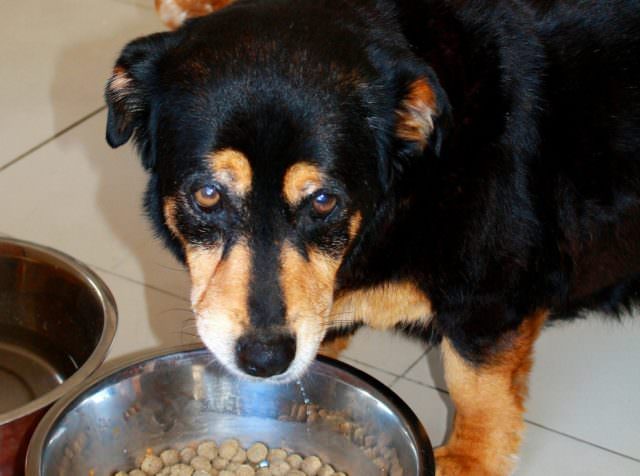Every dog lover knows that our four-legged friends are most certainly capable of complex emotions, and that those emotions are heavily impacted by us humans.
Major changes like bringing home a new pet or baby, moving, or an illness within the family can cause our dogs to suffer stress, anxiety and even depression.
Think your pup may have the blues? Watch for these 7 signs.

1. Changes In Behavior
From a decreased desire to play or go for walks, all the way to frightening issues like aggression; emotional distress can cause your dog to act out in many ways. House soiling and destructive behaviors are a sure sign that your pet is anxious about something. If any of these issues manifest out of the blue, be sure to see your veterinarian to rule out a medical condition. If your pup is healthy, he may just be crying out for more of your attention.

2. Changes In Eating Habits
If your chow hound suddenly begins to turn up his nose at his kibble, he could be suffering from depression or anxiety. Acting more hungry and begging for additional treats could also be a sign of boredom or an emotional disorder. The first stop should be your vet’s office to make sure illness is not causing the shift in appetite. If it turns out your pooch is just on a hunger strike or “eating his feelings” be sure to give him some extra TLC!

3. Changes In Sleep Patterns
The average adult dog sleeps 12 – 14 hours a day. If that begins to stretch into 16 or 18 hours, your pup may be feeling bored or depressed. Remember, our dogs’ entire worlds revolve around us. We are their best friends, personal chefs, playmates and cuddle partners. If your pooch is suddenly restless or snoozing the day away, he’s probably missing his favorite pawrent!

4. Pacing
Obsessive behaviors like pacing could be a sign of a neurological condition, so be sure to get this checked out ASAP. If all is clear on the health front, pacing could indicate that your dog is not getting enough physical, mental or emotional stimulation. Try providing more exercise, cognitive play time and good old fashion hugs and kisses. Anxious pacers also benefit from being kept on a strict schedule.

5. Body Language
A dog’s body language is worth a thousand words. They tend to wear their emotions on their furry sleeves, so if you notice flattened ears, a tucked tail, downcast eyes and a low bent neck – you are looking at one upset pooch! Other signs that your dog is frightened, sad, anxious or distressed include shaking, hiding, burrowing and clingy behavior.
6. Excessive Shedding
Shedding is perfectly normal for many dog breeds. However, if your pup begins to lose an inordinate amount of hair or you notice patches of hair loss, it could be stress induced. Certain medical conditions can cause itchy skin, hair loss, and brittle or oily coat. See your vet to rule out these problems. If anxiety is the culprit, your pup’s doctor can recommend medications and/or changes at home to alleviate the problem.
7. Excessive Licking
Licking is also normal in dogs to a certain extent. Some dogs suffering from severe stress or depression will lick to the point that they develop bald spots, sores and digestive problems. My Chihuahua mix came to us after his owner died suddenly and violently in front of him. He licked his paws to the point of causing oozing sores for the first few months until he finally settled in and felt safe.
Never underestimate your dog’s ability to feel and express emotional pain and distress. The depth of their love for us is what makes them so incredibly endearing; but it can also cause them heartache when they are feeling lonely or neglected.
Featured Image via Instagram/@ArFrodo
